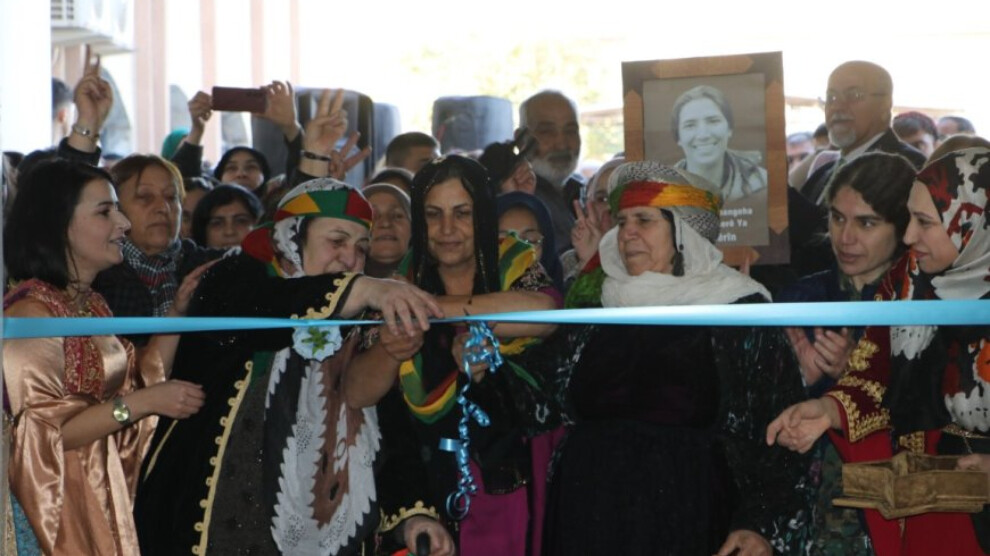Hilala Zêrîn Women's Cultural Movement opens Higher Art Academy in Hesekê
The Hilala Zêrîn Women's Cultural Movement opened a Higher Art Academy in Hesekê on the anniversary of the death of Revolutionary Commander Martyr Şîlan Kobanê.
The Hilala Zêrîn Women's Cultural Movement opened a Higher Art Academy in Hesekê on the anniversary of the death of Revolutionary Commander Martyr Şîlan Kobanê.

The Hilala Zêrîn Women's Cultural Movement of Northern and Eastern Syria opened a Higher Art Academy in the neighborhood of Xiwêran in Hesekê as a result of 3 years of work. The academy opened on the 20th anniversary of the death of revolutionary martyr Şîlan Kobanê (Meysa Baqî).
The opening ceremony took place under the slogan "Women weave freedom", and was attended by representatives of the Autonomous Administration, Women's Defense Units (YPJ), Democratic Society Movement (TEV-DEM), Kongra Star, political parties, families of martyrs, the family of Martyr Şîlan Kobanê, dozens of students and artists.
Speaking on behalf of the academy, director Evîn Başo congratulated everyone for the opening of the academy to Rojava Kurdistan, and paid tribute to all revolutionary women, Leader Abdullah Öcalan and the families of martyrs.
Edalet Omer, the President of the Women's Board of the Democratic Autonomous Administration of Northern and Eastern Syria, welcomed the opening of the academy, a new education space for all the people of the region and promised to continue the struggle based on the philosophy of "Jin, Jiyan, Azadî".
Congratulatory messages were read on behalf of Kongra Star, YPJ General Command and political parties.
After the messages were read, the Higher Art Academy administration presented a plaque to the family of Martyr Şîlan Kobanê.
Fatma Muslim, the mother of Martyr Şîlan Kobanê, said: "The struggle for freedom is not only with weapons. Every woman who works and studies here is a Şîlan and follows in Şîlan's footsteps." Later, the Rojava Orchestra Group performed Koma Hîlala Zêrîn artworks and at the end of the ceremony, Martyr Şîlan Kobanê’s mother cut the ribbon to let people into the academy.
The academy consists of five departments: painting, sculpting, music, theater and cinema, and uses the same system as the universities in Northern and Eastern Syria, employing expert teachers. After completing their education, students receive their official diplomas from the Autonomous Administration.